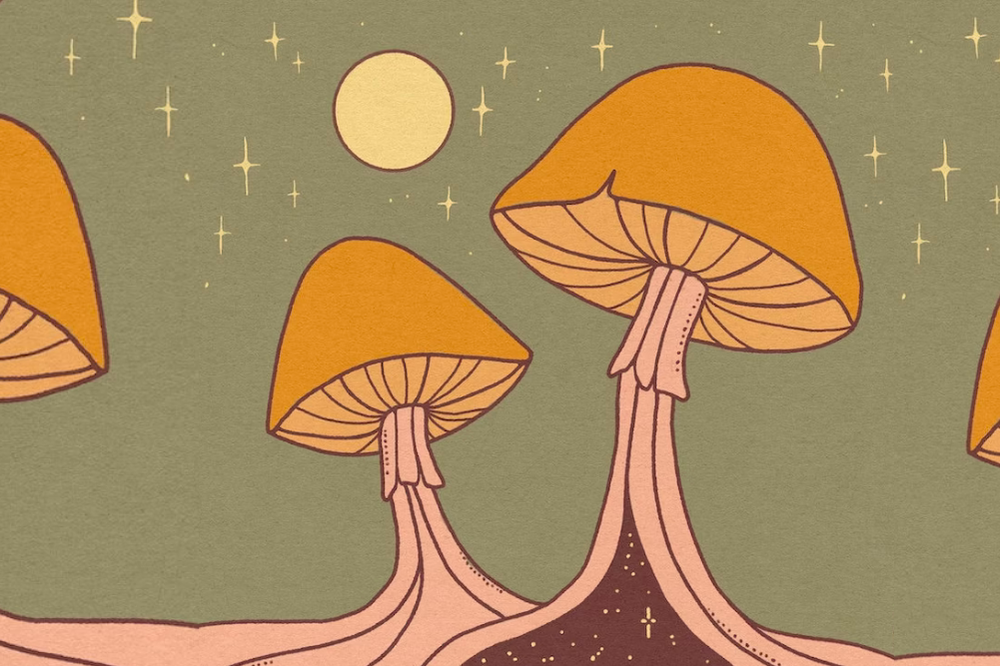You may be keenly aware of the studies and clinical trials pouring in about the immensely positive effects of psychedelic therapy on mental health & depression, and addiction but have you considered them as a potential investment opportunity? And have you considered that supporting said companies – with your shareholder dollars – can have a huge impact on the pharmaceutical industry and the general welfare of our world? Let me explain.
It’s no secret that traditional pharmaceutical companies have exploited the sick for decades – raking in massive profits and creating pharmaceutical dependence for its consumers – all you must do is reference the opioid and antidepressant epidemic(s). Often, disease is a systemic issue whose leading indicator is mental health and lifestyle. That’s not to say that pharma doesn’t have its acute, and incredible, uses – it would be dishonest to say otherwise. I’m merely pointing out that we live in a society of sick-care, not healthcare. Big pharma rules capitalism. And so many find themselves at the mercy of SSRIs, opioids, and so many others.
”Investing is a vehicle for advancing society – voting with your shareholder dollars – when we recognize the powerful connection between company strategy, social purpose, and economic value.
What we invest in, we empower. It’s that simple. And that frame of mind is a pillar for what it means to invest consciously. Money is energy and the money we invest effects not only our own capital gains/losses but also the customers, employees, suppliers, and communities of our investment holdings. When investors ignore their own social responsibility and fail to recognize the powerful connection between company strategy, social purpose, and economic value, they are eroding the impact and legitimacy of capitalism as a vehicle for advancing society.
Companies that create shared value can outperform their peers, delivering superior returns both to society and to their shareholders. I believe this will be the case for the enterprises forging the new frontier of psychedelic therapy and I hope you too will consider its applications, and as an investment opportunity.
AllOne has been cultivating a strategy which seeks to invest in the research, development, production and/or use of psychedelics to address medical conditions in legal pharmacological applications under the applicable jurisdiction’s laws.
Interested in learning more? Schedule a call with me HERE
Warmly,
Mark Sauer
info@AllOneWealth.com
+1(310)355-8286
Two Clinical Trials: The Effects of Psychedelics on Mental Health
Psychedelic drugs have the potential to disrupt the treatment of mental health because they may offer treatments that exceed traditional pharmacological approaches. Many conventional approaches have exhibited limited efficacy while subjecting patients to a potential lifetime of drug therapy.
However, promising research is highlighting the potential of psychedelic drugs and its profound impacts on mental health. Below I highlight two of the many clinical trials producing meaningful results.
Psilocybin-Assisted Therapy Significantly Reduced Depressive Symptoms
Compass Pathways reported promising results from one of its clinical trials. [1] The study found that patients who received a single dose of psilocybin, also known as magic mushrooms, in conjunction with therapy, reported almost immediate and significant reduction in depressive symptoms that lasted weeks when compared to patients who received a placebo.
In the study, 36.7% of those that took the psilocybin dose showed a 50% or more reduction in three weeks after the single dose and then again three months later compared with patients that took the placebo. 24% of the recipients who received the highest dosage, were still in remission three months later.
The researchers who conducted the study were encouraged by the fact that the drug’s effects were rapid and sustained among patients who had tried two to four medications previously without success, and many of them exhibited suicidal behavior and tendencies.
The trial’s results are particularly impressive compared to current treatments that may consign patients to a lifetime of medication with limited results.
Ketamine Helped Severe Alcoholics Abstain Longer
A trial led by the University of Exeter found that ketamine assisted therapy, when coupled with therapy, helped to prevent people from quickly returning to heavy drinking after stopping. [2]
The study included people with alcohol problems who were abstinent at the time of the trial. The trial found that ketamine-assisted therapy helped the participants stay completely sober for 162 of the 180 days in the six-month follow-up period, representing an 87% abstinence rate. Trial participants were more than 2.5X times more likely to stay completely abstinent at the end of the trial than those who received the placebo.
Within the trial, some evidence showed that ketamine and therapy may prevent any drinking over six months, though the results were more mixed. Patients who receive ketamine also had lower depression after three months and better liver function, even if not combined with therapy.
Researchers involved in the study noted that 75% of people return to heavy drinking within six months of quitting, which was particularly encouraging
Sources:
[1] Yakowicz, Will, Psilocybin Fount to Rapidly Improve Depressive Symptoms in Patients during Groundbreaking Clinical Trial, Forbes, 11/11/21
[2]Ketamine and Psychological Therapy Helped Severe Alcoholics Abstain For Longer In Trial, University of Exeter, 1/11/22







